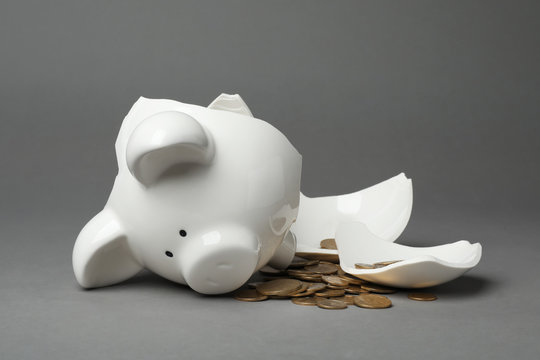I had a friend, Sarah, tell me how she was sick of living paycheck to paycheck and not able to save money. Of course, this is an average thing for most Americans today, as 66% of the population struggle to make ends meet. I would have felt sorry for her, if she didn’t just get done telling me about her trip to Puerto Rico and the cruise she booked for the following month.
This too is unfortunately a common occurrence in our developed nations, hence why the phrase “make ends meet” was italicized above. That phrase, according to the Oxford Languages Dictionary, means to “earn enough money to live without getting into debt.” I would argue that many of the 66% of Americans who are living paycheck to paycheck are not actually struggling to “make ends meet”, they are struggling to understand reality.
What Is Living?
This begs the question, what is living? In the very utilitarian sense, living is to be alive. In the more emotional and artsy sense, living could mean many things, like having a good life, which then could be interpreted any number of ways. For our purposes let’s say that it is somewhere in the middle. Therefore, we will say that living means to have a reasonable comfortable life, where you have a place to live in a relatively safe area, don’t need to worry where your next meal is coming from, and have access to medical resources that are necessary for you.
Anything above that standard should be seen as an exceptional life, at least while you are on the verge of collapsing into debt.
“Is this want-a-be Mr. Money Mustache telling me I don’t deserve to take a trip to Mexico in the winter after working my butt off at work all year?”
If you are broke, then you’re damn right I am. If that trip is going to cause you to go into debt or not have enough money in your bank account to cover your next month of expenses, then you can’t afford it.
The problem Sarah had, as with most people, isn’t that she wasn’t making enough money, it was that she was spending too much money. Sarah works hard and makes a decent paycheck but is still struggling to get by.
It’s Not A Math Problem, It’s A Behavior Problem
The issue isn’t a math problem, it’s a behavior problem. Sarah makes enough money to cover her basic cost of living and then some, but because of her spending behaviors, it doesn’t feel like that.
As a solution to her issue, Sarah suggested that she moves back in with her parents for a year or two, saving money and waiting on a raise to increase her income. When she suggested this, I told her it wasn’t likely to solve her money problems.
As you would expect, she didn’t understand what I meant. Wouldn’t moving in with her parents and not having rent mean she could put that payment towards savings instead? Yes, it does mean that, but knowing Sarah’s spending behaviors, she is likely to use that money for new clothes or vacations rather than saving it.
Why would anything change? She is making enough money to pay for rent and save money, even if she wanted to take one or two vacations a year.
How To Save More Money
So, we have established that Sarah’s problem is not her salary, but her behaviors and habits. What can she do to solve this?
The first thing is to see where the money is going. Go back through credit card statements and your bank account and look at your purchase history. Did you spend $200 at Starbucks last month and not notice? How about that $50 target run to get some new clothes that you left in the back of your closet and forgot about?
As you are going through your transactions, put them into three categories: 1. Necessities (Rent, Groceries) 2. Luxuries (Restaurants, Streaming Services) 3. Elimination (Unused Memberships, Impulse Spending).
Once they’re labeled, get rid of the Elimination group. Next, reduce your spending on the Luxuries group while you are trying to get out of debt or save money.
The next step is keeping yourself to your new plan of spending less money. The best way to do this is to have a budget and to track you spending. There are plenty of free apps that can help you do this or, you can use an excel spread sheet or go old school and just write it down on a piece of paper you keep easily accessible.
Your budget should take into account the Necessities and recurring charges like a car payment and insurance. Once those are factored in, allocate some of the money to debt payments or saving, and then some to Luxuries. The ratio of savings to Luxuries may improve or worsen over time as your level of seriousness varies.
The Most Important Part
Now stick with it and keep track of your spending! The best way to improve something is to track it. CEO’s and large companies use this tactic to improve profits and employee performance. We can use it to improve our financial situations.
If Sarah were to follow through with this plan, I can guarantee it will help to get her your finances back on track and be able to afford that vacation she is looking forward to.




